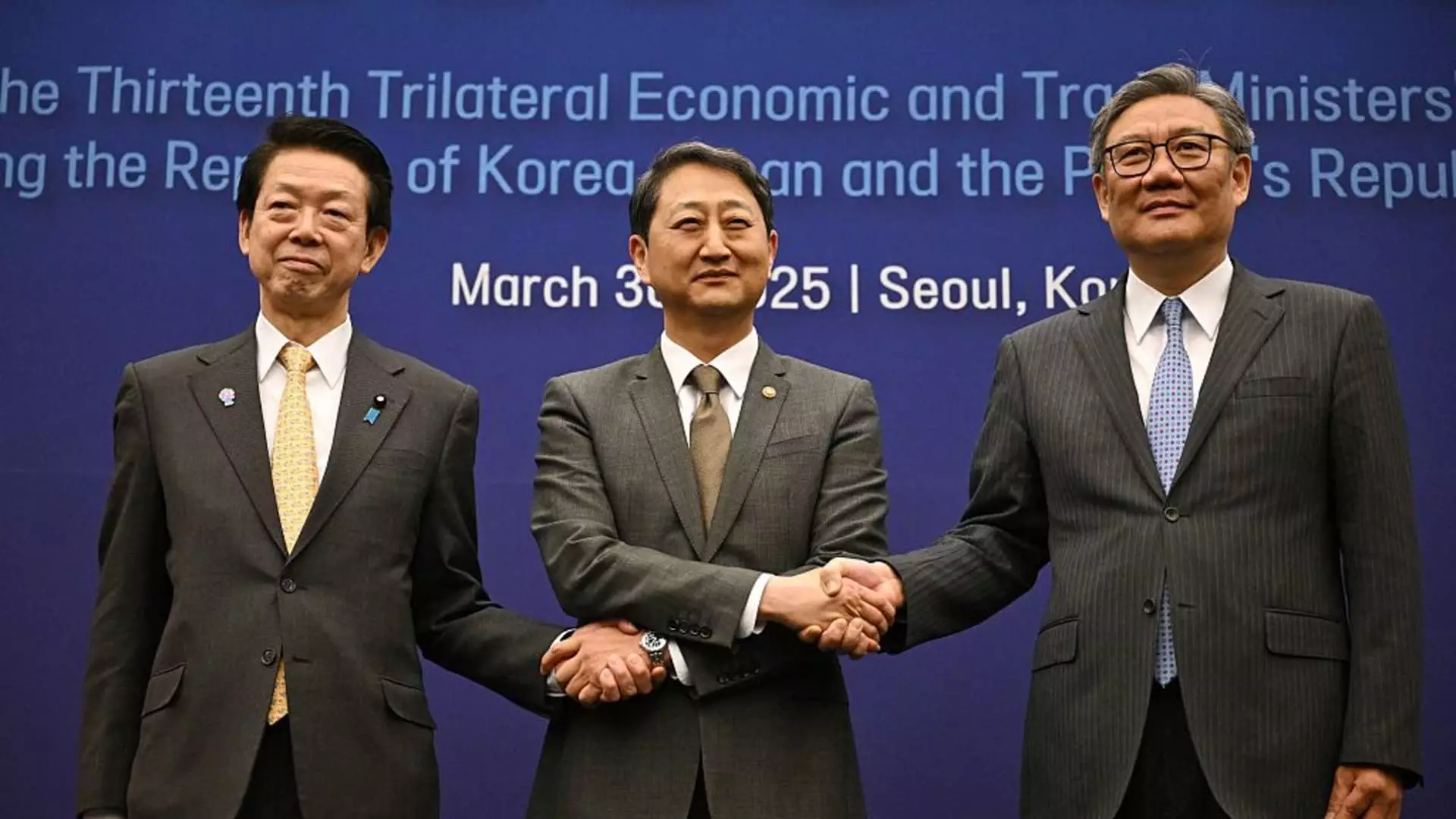The recent meeting of trade ministers from South Korea, China, and Japan marked a significant but cautious step towards rekindling economic dialogue that has been dormant for five long years. While the intent to strengthen regional trade ties amidst the backdrop of U.S. President Donald Trump’s escalating tariffs is undoubtedly critical, one cannot help but question the genuineness and sustainability of such diplomatic efforts. The three nations, while economically intertwined, have been caught up in a web of territorial disputes, historical grievances, and environmental concerns, notably Japan’s controversial plans to release wastewater from the Fukushima disaster. It remains to be seen whether these discussions will lead to actionable outcomes or simply serve as another round of diplomatic posturing.
A Weak Framework with High Stakes
The Trade Minister of South Korea, Ahn Duk-geun, expressed the necessity to enhance the implementation of the Regional Comprehensive Economic Partnership (RCEP). Yet, the reality of fostering a robust framework for trade cooperation among these nations, particularly through a potential Korea-China-Japan Free Trade Agreement (FTA), seems ambitious at best. The RCEP, designed to lower trade barriers among its 15 member states, faces challenges not just from external pressures like the U.S. tariffs but also from the entrenched disputes within the region. With negotiations for a trilateral FTA stalling since 2012, one has to ponder the effectiveness of their recent commitments in the face of such historical animosities.
The Elephant in the Room: Global Trade Dynamics
Notably, Trump’s administration has radically altered global trading dynamics, often leveraging tariffs as tools for what he calls “liberation.” This approach poses grave risks not just to economic cooperation among Asian nations but to the global trade landscape. The implications of a 25% tariff on cars and auto parts, which predominantly affects Asian manufacturers, are staggering. Countries like South Korea and Japan, major exporters to the U.S. market, might find their economies compromised further. This scenario calls into question the stability and future of not just the trilateral relations but also their collective bargaining power against American trade policies.
Will a Meeting Just Be a Meeting?
As they prepare for their next ministerial meeting in Japan, it is paramount to reflect on the effectiveness of these gatherings. Are they merely relying on words and goodwill? The political theater surrounding this “economic dialogue” runs deeper—the unease among citizens regarding national pride, historical offenses, and environmental policies make concrete agreements difficult to achieve. The sincerity of each country’s commitment is cast into doubt when overshadowed by past grievances and the pressing realities of nationalism.
Amidst these complexities, the conversation must not just be about trade, but about healing and collaboration for the betterment of the region. The economic might of South Korea, China, and Japan needs to converge towards a common purpose rather than merely skirting around historical grievances. Each nation holds a stake in one another’s success, and failing to recognize this could lead to further isolationism and economic fragmentation in a global climate already tense due to tariff wars.


Leave a Reply